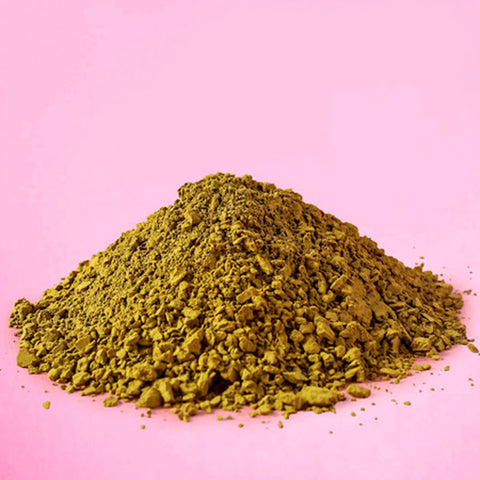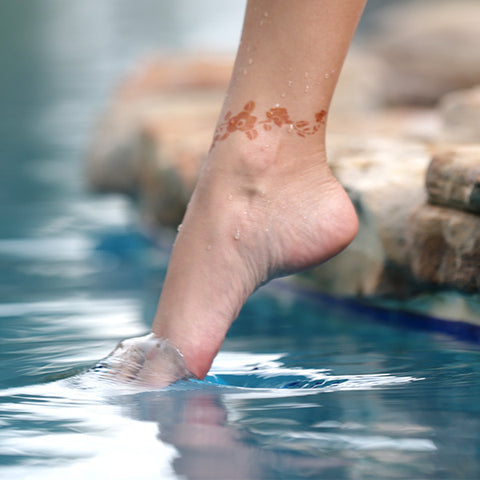Thank you to everyone who enjoyed our first post on Henna Tattoos Q&A, and to everyone who reached out with additional questions, we have answers for you too! If you run into any further questions, please don’t hesitate to reach out to us on our Contact form or even our Facebook page. We are more than happy to make sure all of your henna questions are resolved.
What Kind of Henna Should I Buy?

There are plenty of options when it comes to henna paste. You can create your own with henna powder or opt for the ease of a pre-made paste. Our goal at Mihenna is to make henna application as easy and safe as possible, so our henna paste is already mixed and coned to save you the time and energy. In order to give you the longest lifespan on your henna, the paste is made fresh when you order. We also only use safe, organic ingredients: water, eucalyptus oil, cane sugar, and guar gum combined with Indian henna powder.
Always be sure to find out the ingredients of the henna paste you purchase. If there are additional chemicals, it can be unsafe for your skin. And please never, never use “black” henna. This can be highly dangerous and is known to leave permanent damage to your skin. You can read more about the dangers of black henna here.
Can I Freeze Henna Paste?
Yes, you absolutely can. In fact, we recommend it if you are not planning to use your henna paste right away. The ingredients in henna can separate at room temperature and become less effective. To combat this, we use guar gum to help bind together the oil and water that normally do not mix well.
Note: Expired henna is not dangerous to your skin - just ineffective as a dye.
When you are ready to create your henna tattoos, allow the frozen henna paste 20 minutes to defrost. Or if you’re good at planning ahead, you can move the henna cone to the refrigerator the night before your henna party to unfreeze slowly and still remain in a cool environment when ready.
Will Henna Tattoos Come Off in Water?

It is best to avoid submerging new henna tattoos in water for the first few hours. The henna stain will still be setting into your skin for 24 hours, but if you can avoid water for the first 5 hours, then you are fine for general washing.
If you are planning to go for a swim, your henna tattoos will not immediately come off in the water, but they will fade faster. In the best possible conditions, your henna can last up to 3 weeks. The more you submerge or exfoliate your skin, the faster your henna will fade away. We recommend using coconut oil on a regular basis to increase the longevity of your temporary tattoos.
Is Henna Safe During Pregnancy?
If you are using organic henna paste with no added chemicals, then yes! Henna baby bumps are increasingly popular during pregnancy photoshoots. Some people put henna on their belly to feel beautiful and celebrate the journey of motherhood. Some people create symbols of good fortune and representations of their hopes for their child’s future. When Beyonce was pregnant with her twins, she used henna on her baby bump to create traditional African symbols that evoke the power of the feminine spirit, and she looked phenomenal while doing it! Check out photos of Beyonce and more celebrity henna here.
How Do I Create Henna Freckles?

You have come to the right place. We love how easy and fun henna freckles are to make. Follow these steps to DIY some trendy faux freckles.
First wash and dry your face to have a clean canvas. Then apply dots of henna paste across your nose and cheeks in varying sizes and placements. Allow the paste to dry for 30 mins to 2 hours, depending on how dark you want your fake freckles to be. Use coconut oil to remove the dried henna paste and simultaneously moisturize your skin. The henna freckles will darken for 24 hours. Finally you’ll have that sun-kissed look everyone is craving!
